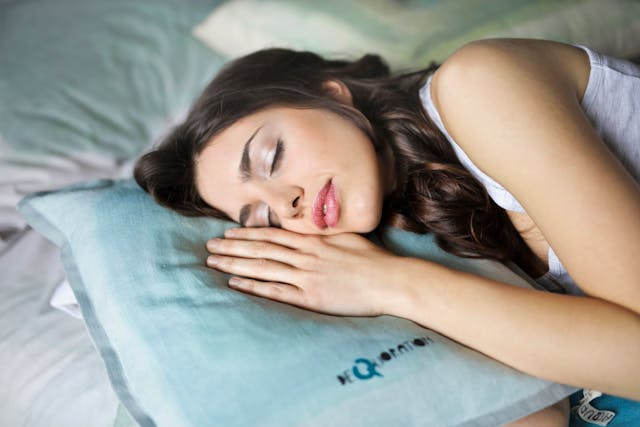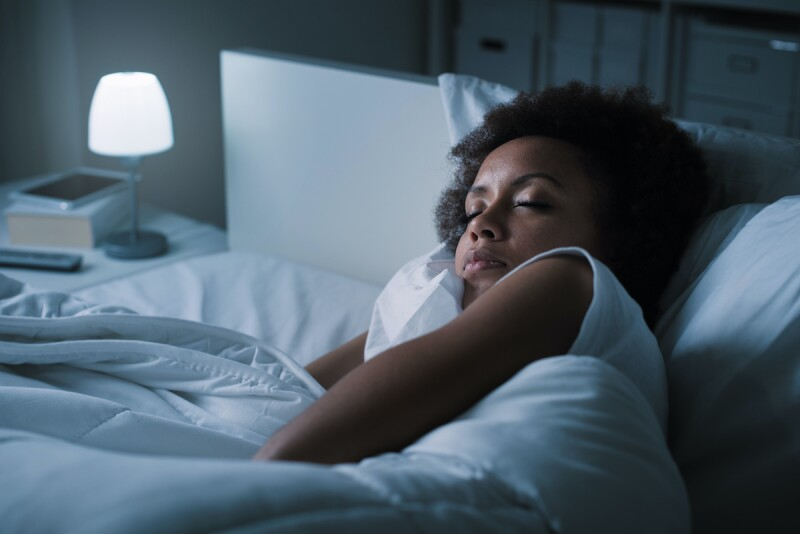Sleep is essential for your health, yet so many of us find ourselves tossing and turning at night, wondering why sleep feels so elusive. If you’re having trouble falling asleep but don’t want to rely on sleeping pills, you’re not alone. Fortunately, there are plenty of natural and effective ways to relax before bed and improve your sleep quality without medication.
Understanding Why Sleep Matters

Sleep isn’t just about recharging your energy—it’s the backbone of good health. When you sleep, your body repairs itself, your mind processes information, and your emotions reset. Skimping on sleep can lead to weakened immunity, weight gain, and even more serious issues like heart disease or diabetes.
When you understand just how important sleep is, it becomes easier to make it a priority. The good news? You don’t need pills to improve your sleep quality. All it takes is a few changes to your routine and mindset.
What’s Keeping You Awake? Identifying the Barriers
Before diving into solutions, it’s important to figure out what’s stopping you from sleeping. Stress and anxiety are major culprits, but they’re not the only ones. Maybe you’ve had too much caffeine late in the day, or you’re guilty of scrolling on your phone right before bed. Sound familiar?
Environmental factors like noise, light, or an uncomfortable mattress can also disrupt your sleep. Identifying these barriers is the first step toward reclaiming your rest. Once you know what’s keeping you awake, you can start addressing the root causes.
Natural Techniques to Relax Before Bed
When it comes to falling asleep, relaxation is key. Here are a few tried-and-true methods to help your body and mind unwind:
- Deep Breathing Exercises: Take slow, deep breaths. Inhale for four seconds, hold for four seconds, and exhale for four seconds. This simple technique calms your nervous system.
- Progressive Muscle Relaxation: Start at your toes and slowly tense and release each muscle group, working your way up to your head. It’s like giving your body a signal that it’s time to relax.
- Guided Imagery: Picture yourself in a peaceful place—maybe a quiet beach or a cozy cabin in the woods. Use all your senses to imagine the scene, and let your mind drift.
These techniques don’t just help you relax; they create a mental environment that’s perfect for sleep.
Transform Your Bedroom Into a Sleep Sanctuary
Your bedroom should feel like a retreat—a place where your mind and body instinctively know it’s time to rest. Start by assessing your sleep environment:
- Keep It Dark and Cool: Invest in blackout curtains and keep your room at a comfortable temperature. Darkness helps your body produce melatonin, the hormone responsible for sleep.
- Minimize Noise: If you’re a light sleeper, use white noise machines or earplugs to block out disturbances.
- Ditch Electronics: Keep your bedroom a screen-free zone. The blue light from phones and TVs can trick your brain into staying awake.
Comfortable bedding and a supportive mattress also make a big difference. Think of your bedroom as a spa for your senses—peaceful, cozy, and inviting.
Stick to a Bedtime Routine That Works for You

A consistent bedtime routine signals to your body that it’s time to wind down. What works best? That depends on you, but here are a few ideas:
- Take a warm bath to relax your muscles.
- Read a light book or listen to calming music.
- Write in a journal to get your thoughts out of your head and onto paper.
The key is consistency. Going to bed and waking up at the same time every day—even on weekends—helps regulate your internal clock. Over time, this makes falling asleep easier and more natural.
How Diet and Exercise Affect Sleep
Your daytime habits have a direct impact on how well you sleep at night. Here’s what you should keep in mind:
- Exercise Regularly: Physical activity reduces stress and helps tire your body out, but avoid working out too close to bedtime—it might leave you feeling too energized.
- Watch Your Diet: Avoid heavy meals, caffeine, and alcohol in the evening. Instead, opt for sleep-friendly snacks like bananas, almonds, or yogurt.
Certain nutrients, like magnesium and tryptophan, are known for their calming effects. Incorporating these into your diet can help create the perfect internal conditions for restful sleep.
Mindfulness and Meditation: Quieting the Mind

Ever find yourself lying in bed with your thoughts racing? That’s where mindfulness and meditation come in. These practices help you focus on the present moment, quiet your mind, and let go of the day’s stress.
A simple meditation technique you can try involves closing your eyes, focusing on your breath, and gently bringing your attention back every time your mind wanders. Even five to ten minutes of mindfulness before bed can make a big difference.
Why Technology Is Sabotaging Your Sleep
Let’s be honest—most of us are guilty of scrolling on our phones in bed. But the blue light emitted by screens suppresses melatonin production, making it harder to fall asleep. What can you do?
- Set a tech curfew and power down your devices at least an hour before bed.
- Use blue-light-blocking settings or apps if you absolutely need to use your phone.
- Replace screen time with activities that help you relax, like reading or journaling.
Technology can be great, but when it comes to bedtime, less is definitely more.
The Calming Power of Aromatherapy
Scents can have a powerful impact on your mood, and certain essential oils are known for their relaxing properties. Lavender, chamomile, and sandalwood are particularly effective at creating a soothing atmosphere.
You can use a diffuser to fill your room with calming aromas, add a few drops of essential oil to a warm bath, or even apply diluted oils to your wrists or temples. It’s a simple yet effective way to wind down.
Herbal Teas and Supplements to Consider
If you’re looking for something to sip on before bed, herbal teas like chamomile, valerian root, or passionflower are great options. These teas have natural calming effects that can help ease you into sleep.

Natural supplements like melatonin or magnesium can also be helpful, but always consult a healthcare provider before starting any new supplement. Sometimes, a little extra help is all you need to drift off peacefully.
When to Seek Professional Help
If you’ve tried everything and still can’t fall asleep, it might be time to consult a professional. Persistent sleep problems could be a sign of an underlying issue, like insomnia or sleep apnea. A healthcare provider or sleep specialist can evaluate your situation and recommend personalized solutions.
Conclusion: Small Changes, Big Results
Falling asleep without the help of sleeping pills is absolutely achievable. By making small adjustments to your routine, environment, and mindset, you can create the perfect conditions for restful, rejuvenating sleep.
Start with one or two strategies from this list and see how they work for you. Remember, it’s all about finding what feels right for your body and lifestyle. Sleep is a journey, not a destination—so be patient, stay consistent, and enjoy the process of reclaiming your rest. Sweet dreams!


